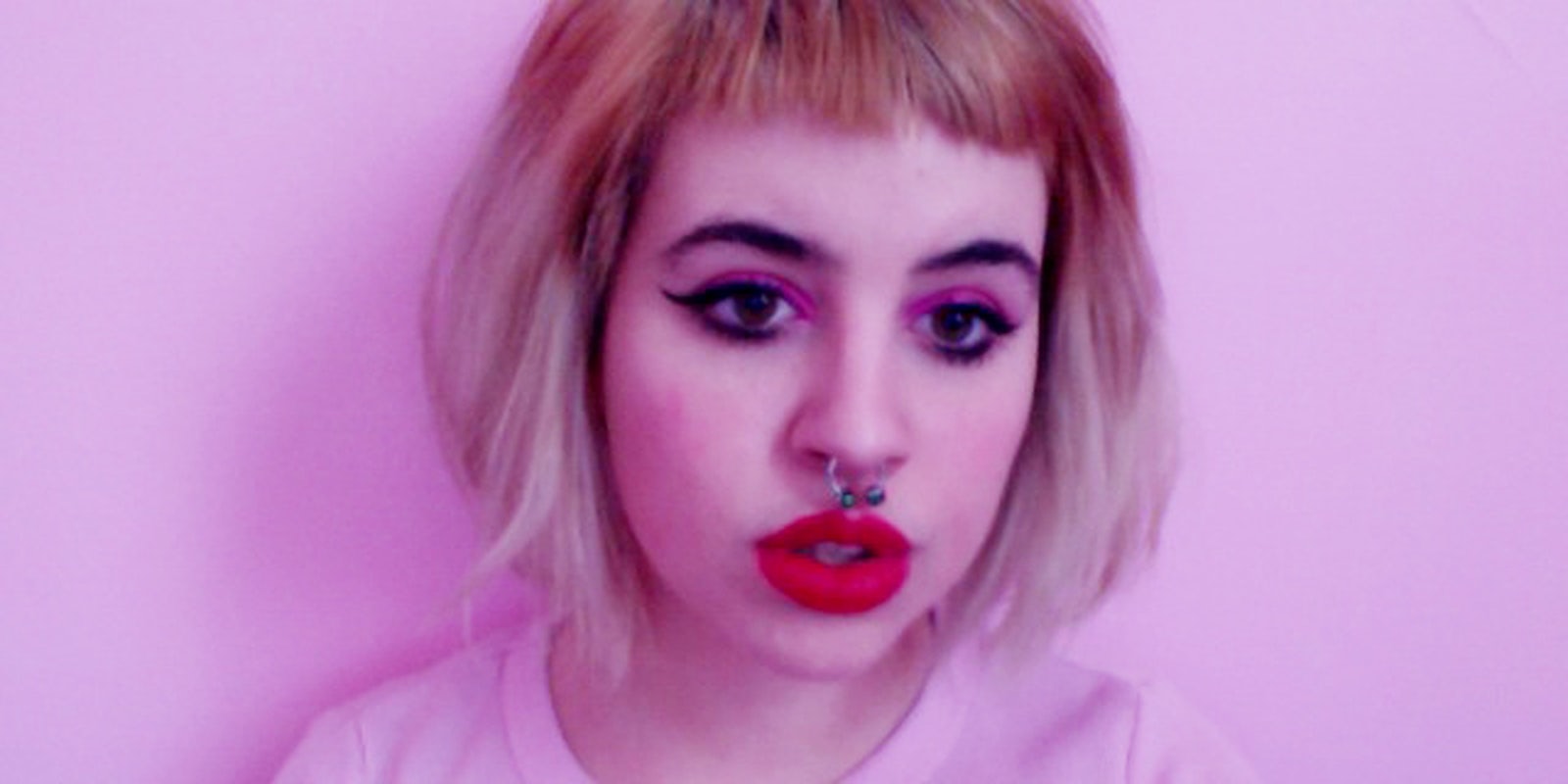At what point is it acceptable to use someone else’s selfies in your artwork? Do you have a duty to ask the original photographer for permission? And if you don’t know who they are, does that make it better, or worse?
These questions have just been raised by the case of Chicago curator Paul-David Young, who recently announced a gallery show titled “To Perform, To Conceal,” featuring nude photographs of an anonymous woman.
The photos were given to Young by a friend, who found them in a bag on top of a dumpster. But far from being completely unknown, the “anonymous” woman in the photos is actually Molly Soda, a digital artist with a popular presence on YouTube and Tumblr. Until the identity of Young’s “found photos” was uncovered in an article by Animal New York, Soda had no idea that her photographs (some of them nude self-portraits) were about to be shown as part of a gallery exhibit by someone she’d never even met.
As Animal pointed out, it would’ve taken a matter of seconds to do a reverse image search on Young’s “found photos” and easily source them back to Molly Soda’s old Flickr account, where most of the images can be publicly viewed for free.
Descriptions of Young’s gallery show romanticize the unknown origins of the photos, presenting them as anonymous and implying that their original subject was impossible to find. However, once Animal had revealed the true identity of the photographer, Young quickly admitted that he’d known she was Molly Soda all along. He even claimed that he’d tried to contact her on Craigslist and Tumblr — although Soda says she never received any such messages.
“Early into the project I did learn of Molly Soda,” Young told the Chicago Reader. “There is a distinction between “anonymous” and “unknown”… For me, to mention her name is/was only a distraction.”
In between selfies and YouTube videos, Molly Soda posted another quote from Young on her own Tumblr: “I do not think of these as Molly Soda’s photographs… Crediting them as anonymous is different than unknown, which is to say unknowable.”
By this logic, it should be OK to take anyone’s art and label it as “anonymous,” in order to appropriate it for your own purposes.
Whether or not Young did attempt to notify Soda that he’d found her photos (which wouldn’t have been difficult, since a split-second of googling turns up her Twitter, Tumblr and personal website as the top three hits), his actions were, at best, questionable. Even if he did know Soda’s identity before announcing the gallery show, then he was still exhibiting her nude photos without her permission. As both photographer and subject, Molly Soda’s name and history with the photos were erased to make way for Young’s gallery concept, which partly relied upon the idea of the photos being mysterious “found objects” rather than images that could be sourced quite easily online.
Artist Molly Crabapple tore into Young in a series of tweets, saying:
““I do not think of these as Molly Soda’s photographs” says the male curator who took a female photographer’s work and showed it as his own
— Molly Crabapple (@mollycrabapple) February 5, 2014
The Molly Soda story exists on the perfect Venn Diagram of no-credit Tumblr culture and patriarchy erasing of women in art.
— Molly Crabapple (@mollycrabapple) February 5, 2014
Using Molly Soda’s name would be a “distraction”, said the male curator. Cause women can never be subjects, only objects
— Molly Crabapple (@mollycrabapple) February 5, 2014
But Molly Soda herself is not particularly bothered by Young using her photos. “I have no idea who this guy is,” she told Animal. “I think it’s wild he found my photos. I threw them all out when I was moving out of my house in Chicago to Detroit. They were all like copies that I didn’t want or bad prints… It’s funny ’cause I always talk about ownership and letting go of ownership once you put something on the Internet, so it’s interesting that this is happening IRL too.”
Paul-David Young still has no plans to mention Molly Soda by name in the publicity materials of his exhibit.
Photo via mollysoda/Tumblr


